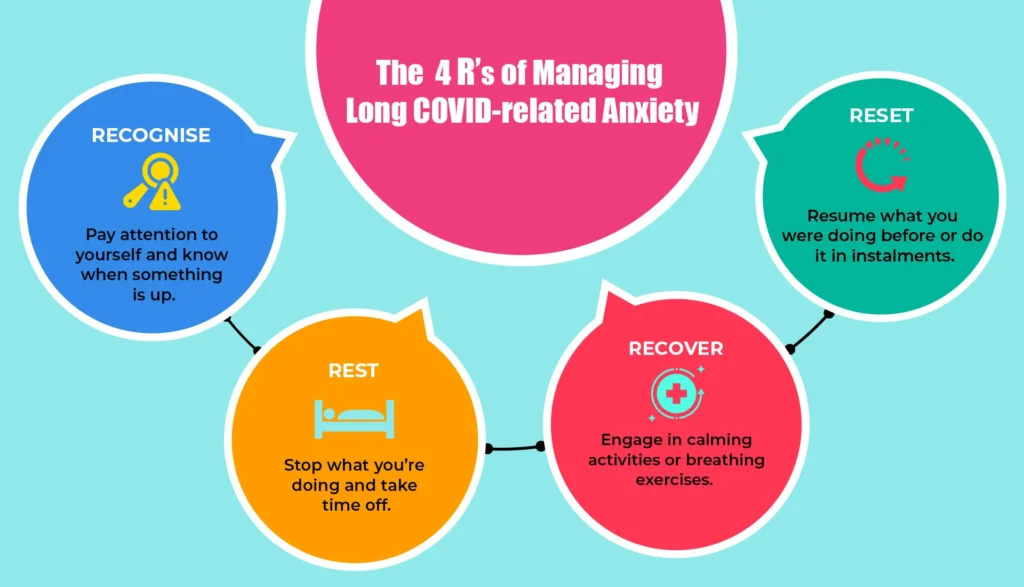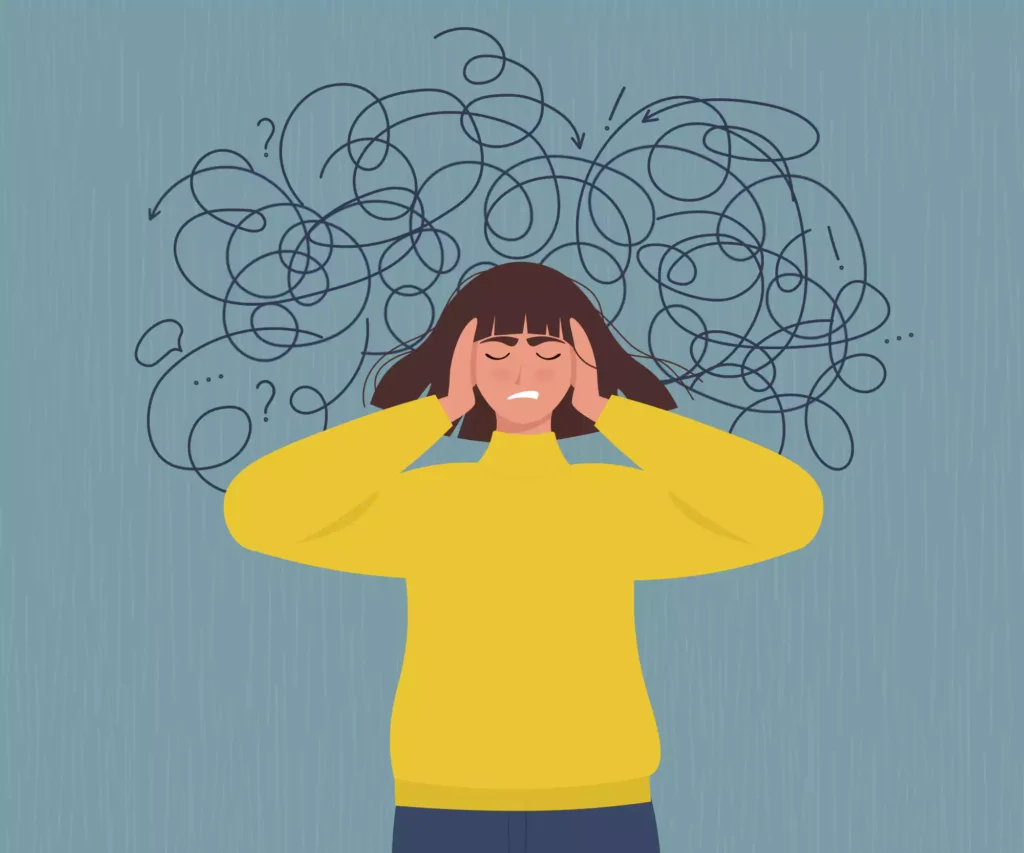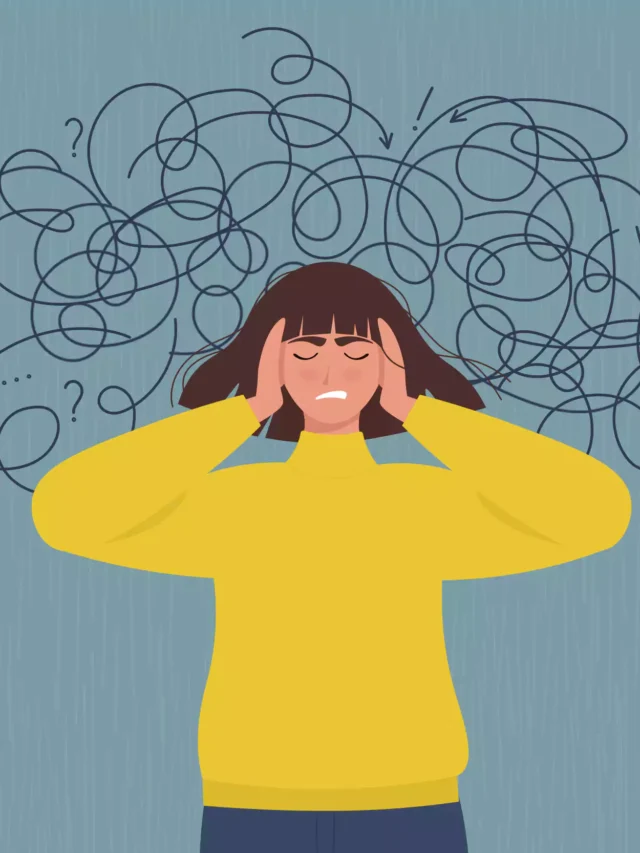Have you been feeling more worried than usual? Do you feel uneasy, constantly anticipating something negative to happen, even if you can’t put your finger on it? Have you also had COVID in the past year? The chances are that you are experiencing Long COVID-related anxiety. Read on to discover what it is and how you can manage it.
What is Long COVID-related anxiety?
Before going into the details of long COVID-related anxiety, let’s understand what ‘anxiety’ is. A person who experiences ‘anxiety’ is prone to expecting something unfavourable to happen. They concentrate on the adverse outcomes of events, preparing themselves with ‘backup plans’ to handle failures or ‘worst-case scenarios’. Sharper breathing, muscle tension, ‘racing thoughts’, an inability to focus, sweating, and restlessness are some of the physical and mental symptoms. Fearing these unpleasant symptoms, a person who suffers from anxiety would worry about experiencing them again, aggravating their already anxious state. Research has shown that people who have had COVID may develop anxiety symptoms due to ‘Long COVID’ effects.
A person who has recovered from COVID may be more anxious in any situation. Unfortunately, they do not receive enough information about what to watch out for when experiencing the many effects of Long COVID. As a result, they feel all the more angry or frustrated with themselves. They also become increasingly worried about their fluctuating energy and moods, especially since there often is no apparent cause for these changes.
Increased anxiety can also cause fatigue, another common Long COVID effect. The combination of anxiety and fatigue can make it more difficult to focus or concentrate, especially at work. People suffering from Long COVID-related anxiety are often advised to ‘push through’ and finish their work. However, when you are overly anxious and tired, this advice may be counterproductive, leading to mistakes that ruin your work.
How therapy can help you manage Long COVID-related anxiety
Lack of awareness makes it difficult for people to understand the connection between mental health and COVID-19 infection. However, therapists worldwide are now more aware of the psychological and neurological effects of COVID-19. A good therapist can assess symptoms to determine whether the anxiety started or worsened after the infection. They can also refer you to a doctor again if needed.
As with any form of anxiety, therapy is beneficial, regardless of what triggered your anxiety.
A therapist can help you:
- Identify your physical symptoms: The therapist can help you prevent anxiety attacks and reduce persistent, low-grade tension by identifying the early physical signs.
- Manage your symptoms: The therapist will introduce you to specific grounding techniques and cognitive tools that are effective in calming down physically. These techniques and tools also help control your negative thoughts and alter how you approach difficult situations.
- Recognise external/internal triggers: The therapist will also help you recognise the events that may trigger anxious thinking, like hunger and thirst.
The insights that you gain from a therapist will help you handle things better during an anxiety attack. As a result, it will also prepare you to be more resilient and confident, considerably reducing the fear associated with the disorder.
Living with anxiety
Research shows that Long COVID symptoms can reduce in intensity and frequency, perhaps within six months. However, it’s important to remember that, in the meanwhile, your body is responding to actual physical and mental changes. Acknowledging these changes and being kind to your needs might prove beneficial in the long run.
If you have felt Long COVID-related anxiety impact your day, here are 4 R’s to try to minimise its effect:

Anxiety, of any kind, requires great care, understanding and compassion. To consult a therapist in such situations is the wisest thing to do. They will help you create a more customised plan to recognise and manage the symptoms at the very onset. This will help you feel physically and mentally stronger.


